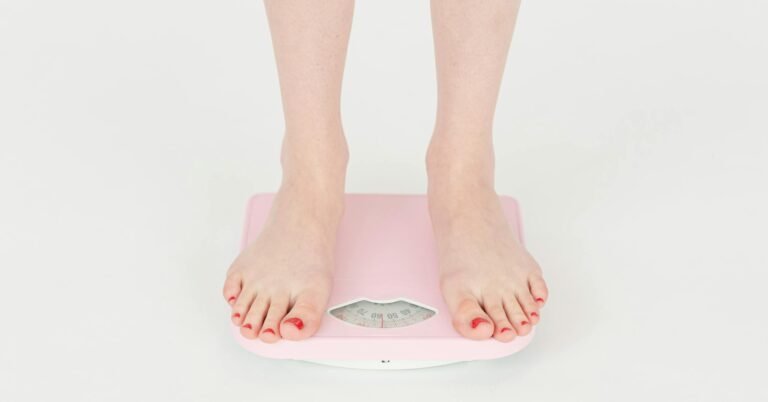Diet fads are all the rage in the last decade! First, Atkins came, closely followed by the paleo, keto, and macrobiotic diets. As the awareness and necessity for health and wellness increases worldwide, so do the number of diet fads that promise everything from weight loss to near immortality!
One such diet trend is intermittent fasting, otherwise known colloquially as “IF”. While not exactly a specific diet, it has recently shot to the spotlight as a potential solution to weight loss and overall health. But what is it, and how do you go about following this eating pattern safely?
Your Guide To Intermittent Fasting
In this blog post, we’ll look at all the basics of intermittent fasting, its reported benefits, potential drawbacks, and how to get you started!
What is Intermittent Fasting?
Unlike other diets that restrict what you eat, intermittent fasting doesn’t. It isn’t a diet per se, but rather, an eating pattern that alternates periods of eating with periods of fasting.
Simply put, it isn’t what you eat; it is WHEN you eat!
Common Intermittent Fasting Schedules
There are several ways to implement and schedule intermittent fasting, depending on your personal preferences.
- 16:8 – This is the most common schedule involving fasting for 16 hours and eating within an eight-hour window each day. An alternative is the 14:10 diet where you fast for 14 hours and eat within 10.
- 5:2 – You’ll seek to eat your normal diet for five days a week but drastically reduce calories to around 500 to 600 on two non-consecutive days. (a normal diet is around 2000 to 2500 calories)
- Eat-Stop-Eat: On this schedule, you’ll fast for 24 hours once or twice a week.
- Alternate-Day Fasting: You’ll be fasting on a low-calorie diet every other day.
The Science Behind Intermittent Fasting
When you fast, several things happen in your body:
- Your insulin levels will drop which will, in turn, facilitate burning fat.
- Your Human Growth Hormone (HGH) levels will increase which will help with fat loss and muscle gain.
- Your body will start repairing cells and initiate autophagy, which is the removal of damaged cells
- Gene expression changes, potentially improving longevity and disease protection.
Some of these processes already occur to some degree during short fasts, for example, when you sleep. Intermittent fasting extends the length of the processes.

Reported Benefits of Intermittent Fasting
- Weight Loss – It has been known to reduce your overall caloric intake and increase fat-burning
- Improved Insulin Sensitivity – Because of the effects that It has on insulin, it could help prevent type-2 diabetes.
- Heart Health – May reduce risk factors for cardiovascular conditions such as heart disease and high blood pressure.
- Brain Health – As It stimulates the growth of new cells, it can protect against neurodegenerative diseases.
- Anti-Aging – Very early studies have known a correlation between IF and lifespan
- Simplicity – Because It doesn’t mess with your actual diet, many find it easier to implement rather than a restricted diet.
Challenges and Potential Drawbacks
- Hunger and Irritability: Especially when starting out. “Hangry” much?
- Overeating: Don’t pig out during your eating window!
- Nutrient Deficiencies: Eat well during your eating window.
- Social Challenges: It isn’t fun to be the only one at dinner not eating because it isn’t your eating window yet.
- Potential for Disordered Eating: It might not be suitable for those with a history of eating disorders.
Intermittent Fasting for Women
Women may face unique challenges with intermittent fasting due to their more sensitive hormonal balance. Some women report changes in their menstrual cycles or increased food cravings when practicing it. Therefore, it’s crucial for women to:
- Start gradually: Begin with shorter fasting periods and gradually increase.
- Listen to your body: If you experience negative symptoms, adjust or discontinue.
- Consider a modified approach: Some women find success with shorter fasting windows (12-14 hours) or fewer fasting days per week.
- Prioritize nutrient-dense foods during eating periods.
- Consult with a healthcare provider: especially if you’re pregnant, breastfeeding, or have a history of hormonal imbalances.

IF Is Not A Magic Solution
There isn’t a one-size-fits-all answer to good health or weight loss. At its core, intermittent fasting is simply a way to give your body a break from constantly digesting food, letting it rest and concentrate on other processes like regenerating cells.
Caloric deficits are key here. If you overeat during your eating window, then your caloric input is still the same, and your weight will be too. During your eating window, be sure to eat foods that are rich with complex carbohydrates, macro-nutrients, vitamins, and minerals.
The Importance of Hydration During Fasting
Hydration is always important, but with intermittent fasting, it is even more crucial. Here are a few reasons why it’s important to stay hydrated when fasting.
- Preventing Dehydration – Fasting decreases your blood sugar and this causes a reduction in your body’s water content. Staying hydrated with electrolytes is crucial to IF sustainability, normal muscle function, and can also prevent headaches and brain fog.
- Reduce Hunger – Filling up with water can help reduce hunger pangs.
- Supports Bodily Function – Your body while fasting is working on other processes, and water will help it do so.
- Detoxification – Water will help your body flush out toxins.
Remember that during fasting, your caloric intake should be zero, so consume only water or beverages with no calories. If you consume electrolytes, make sure that you opt for a zero-calorie one. Avoid sweet and sugary beverages like the plague!
Getting Started with Intermittent Fasting
So, you’ve heard about intermittent fasting but are not sure how to get started. Here’s what you need to do:
- Choose a Method: Aim to implement the 16:8 schedule as it is the easiest, but start with a smaller fasting window, like 12 or 14 hours. Start with the 16/8 method, as it’s often the easiest to implement.
- Plan Your Meals: IF doesn’t mean you can eat junk food during your eating window! Aim for nutritious food like whole grains, veggies, nuts, and fruits.
- Stay Hydrated: Drink plenty of water or zero-calorie fluids during fasting periods.
- Listen to Your Body: If you feel unwell, don’t be stubborn! Break your fast or adjust your schedule.
- Be Consistent: Fast for shorter periods, but do it every day.
- Track Your Progress: Monitor how you feel and any changes in weight or health markers.
Remember, intermittent fasting is not for everyone. Speak to your doctor before starting, especially if you have any pre-existing health conditions.
FAQ: Common Questions About Intermittent Fasting
Q1: Can I drink coffee during fasting periods?
A: Black coffee is generally considered acceptable during fasting as it contains negligible calories. However, avoid adding milk, cream, or sugar.
Q2: Will It slow down my metabolism?
A: Short-term fasting for a period of up to 24 hours doesn’t slow metabolism. In fact, some studies suggest it may boost metabolic rate slightly.
Q3: Can I exercise while fasting?
A: Yes, many people exercise while fasting. However, listen to your body and adjust as needed. Some prefer to exercise during their eating window.
Q4: Will It cause muscle loss?
A: When done correctly and combined with adequate protein intake and resistance training, IF shouldn’t cause significant muscle loss.
Q5: Can I take medications while fasting?
A: Always take prescribed medications as directed by your doctor. Some may need to be taken with food, so time it right.
Q6: Is It safe for everyone?
A: IF is not recommended for children, pregnant or breastfeeding women, people with a history of eating disorders, or those with certain medical conditions. Always consult a healthcare provider before starting.
Q7: How long does it take to see results with It?
A: This varies per individual. Some notice changes within a few weeks, while for others, it may take longer. Remember, consistency is key.
Q8: Can I chew gum while fasting?
A: Most sugar-free gums contain very few calories and likely won’t significantly impact your fast. However, for the strictest approach, avoid gum during fasting periods.
Q9: Will It affect my sleep?
A: Some people report improved sleep with IF, while others may experience disruptions initially. If you notice sleep issues, consider adjusting your eating window.
Q10: Can I do It long-term?
A: Many people practice IF long-term without issues. However, it’s important to ensure you’re meeting your nutritional needs and to listen to your body.
Final Thoughts: Is Intermittent Fasting Right for You?
Intermittent fasting can be an effective tool for weight management and potentially improving overall health. However, it’s not a one-size-fits-all solution. The key to success with IF, as with any eating pattern, is consistency, balanced nutrition, and listening to your body.
Remember:
- It is a tool, not a magic solution.
- Calorie balance still matters for weight gain/loss.
- Nutrient-dense foods are crucial.
- Hydration is key.
- Women may need to approach it more cautiously.
- Always consult with a healthcare provider before starting.
Whether you choose to try intermittent fasting or not, the foundations of good health remain the same: a balanced diet, regular physical activity, adequate sleep, stress management, and staying hydrated. IF can be a part of a healthy lifestyle, but it should be used in tandem with a healthy, nutrient-rich diet, exercise, and restful sleep!






2 Comments